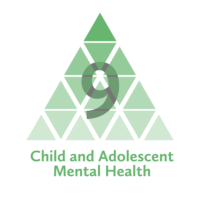Conduct Disorder (CD)
-

Sex differences in psychiatric comorbidity and clinical presentation in youths with conduct disorder – Gregor Kohls, PhD
Video abstract from Gregor Kohls, PhD, on his JCPP paper ‘Sex differences in psychiatric comorbidity and clinical presentation in youths with conduct disorder.’
Read more -

School behaviour difficulties, school based interventions, and inclusive education – In Conversation with Dr. Alice Jones Bartoli
Dr. Alice Jones Bartoli looks at how well equipped schools and teachers are when it comes to dealing with child and adolescent mental health issues, and what more can be done to support teachers and leaders in creating mentally healthy schools, and in supporting the staff themselves.
Read more -

In Conversation… Emotional Regulation with Dr. Emily McGlinchey, and Dr. Joseph Morning
How does emotional regulation manifest in children and young people? What are the interventions? What can parents and schools do to assist? Plus what’s does the latest research say? Includes transcription, and links.
Read more -

Most cited CAMH paper #9 of 25: Review: A systematic review of the impact of physical activity programmes on social and emotional well‐being in at‐risk youth
David R. Lubans, Ron C. Plotnikoff, Nicole J. Lubans.
Read more
Key Practitioner Message includes; Clinicians working with at‐risk youth are encouraged to consider specific physical activity programmes to support social and emotional well‐being and general health in this group -

Conduct Disorders and Aggression
Research Digests about Conduct Disorders and Aggression, including aggression towards siblings, psychological interventions, and parenting practices
Read more -

Conduct Disorders and Aggression edition
Children and young people with conduct disorders often have additional comorbid learning difficulties, neurodevelopmental or mental health disorders, so it is important to be able to assess, recognise and offer appropriate interventions. The effects on a young person’s future and society may be significant if not managed well.
Read more -

Abnormal visual fixation does not mediate deficits in emotion recognition in conduct disorder
Studies have shown that conduct disorder (CD) is associated with impaired recognition of facial emotions1, but whether the cause of this deficit is due to difficulties with attention, interpretation and/or appraisal is unclear. Now, researchers at the Universities of Southampton and Bath have addressed this question.
Read more -

Aggression toward siblings during the preschool years: When does it become atypical?
Most children grow up with siblings. During early childhood, siblings spend a great deal of time together and must navigate challenging situations such as sharing toys and parental attention, features that make conflict inevitable and often emotionally intense.
Read more -

Comorbid anxiety disorder has a protective effect in conduct disorder
The presence of comorbid anxiety disorders (ADs) counteracts the effects of conduct disorder (CD) on facial emotion recognition, according to new research by Roxana Short and colleagues.
Read more -

Cortical thickness can differentiate conduct disorder subtypes
A study by Graeme Fairchild and colleagues has used a neuroimaging approach to compare the structural organization (or “covariance”) of brain regions between youths with different subtypes of conduct disorder (CD) and healthy controls (HC).
Read more